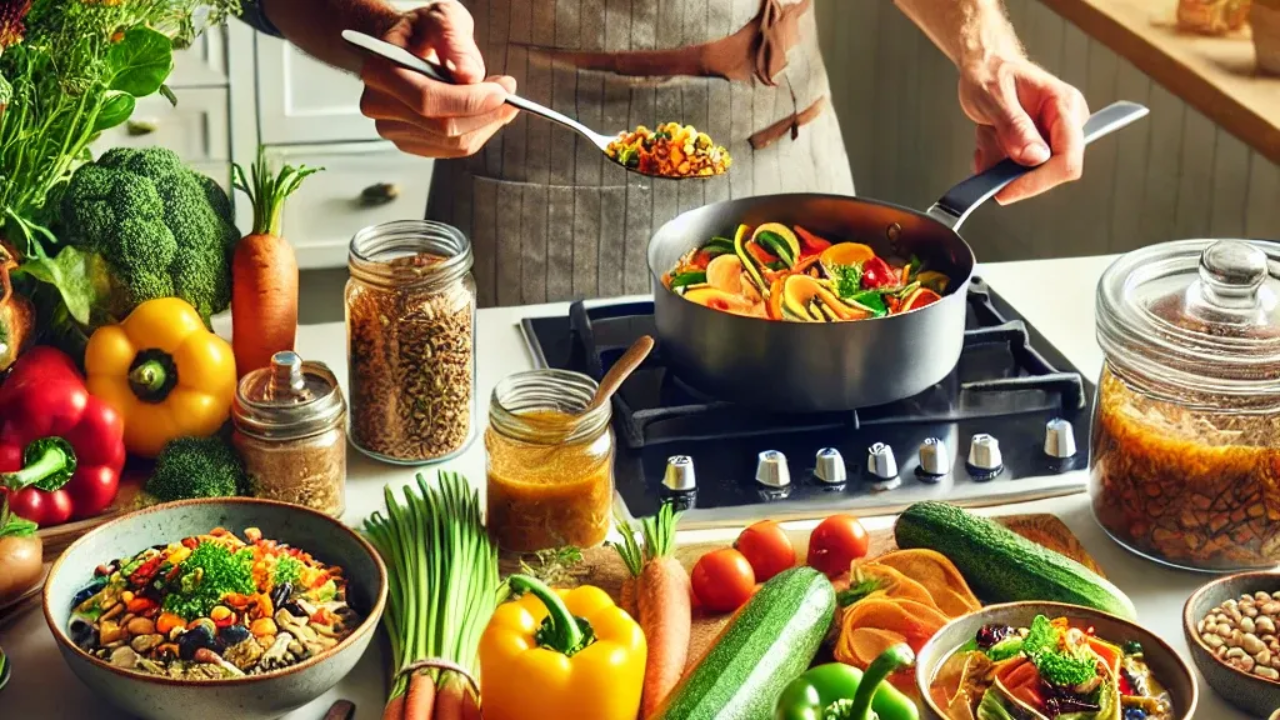10 Essential Skills Every Plant-Based Cook Should Master

Embarking on a plant-based culinary journey can be both exciting and challenging. Whether you're a novice cook or a seasoned chef, mastering certain core skills will not only make your plant-based meals delicious but also boost your confidence in the kitchen. Here are ten essential skills every plant-based cook should master.
1. Knife Techniques
Proper knife skills are foundational for any cook, but they become especially crucial in plant-based cooking, where vegetables, fruits, and other whole foods take center stage. Learning how to efficiently chop, dice, and slice not only speeds up your prep time but also ensures even cooking and professional presentation. Start with the basics: learn the difference between a julienne and a brunoise cut, and practice proper grip and motion to avoid injury. Over time, these skills will become second nature, making your kitchen work smoother and more enjoyable.
2. Making Sauces
In plant-based cuisine, sauces are the key to adding depth and flavor to dishes. Whether it’s a rich tomato sauce for pasta, a creamy cashew-based dressing, or a tangy vinaigrette, mastering a few versatile sauce recipes can elevate any meal. Start by learning the five mother sauces (béchamel, velouté, espagnole, tomato, and hollandaise), then experiment with plant-based alternatives. For instance, cashew cream can serve as a base for a vegan Alfredo, while nutritional yeast can add a cheesy flavor to sauces without dairy.
3. Balancing Flavors
Balancing flavors is crucial in plant-based cooking, where the absence of meat means you rely heavily on other ingredients to create complexity. Understanding how to balance sweet, sour, salty, bitter, and umami flavors can transform a simple dish into something extraordinary. For example, adding a touch of acid (like lemon juice or vinegar) can brighten up a dish, while a hint of sweetness (like maple syrup or agave) can offset bitterness in greens or other vegetables.
4. Understanding Textures
Texture is another important aspect of plant-based cooking, as it can make or break a dish. From the crispness of a freshly roasted vegetable to the creaminess of a well-made hummus, mastering the art of texture is key. Pay attention to how different cooking methods (roasting, steaming, sautéing) affect the texture of ingredients, and learn how to combine them for the most satisfying bite.
5. Cooking Grains and Legumes
Grains and legumes are staples in a plant-based diet, providing essential nutrients like protein and fiber. Knowing how to cook them properly is essential. For example, perfectly cooked quinoa should be fluffy and tender, not mushy, while lentils should hold their shape and not turn to mush unless that’s the desired outcome. Understanding soaking times, water-to-grain ratios, and cooking methods will help you make the most of these versatile ingredients.
6. Fermentation
Fermentation is a powerful technique in plant-based cooking, offering a way to add complex flavors and beneficial probiotics to your diet. Fermented foods like kimchi, sauerkraut, and tempeh are not only delicious but also great for gut health. Learning the basics of fermentation can open up a whole new world of flavors in your kitchen. Start with simple projects like homemade pickles or kombucha, and gradually move on to more complex ferments.
7. Baking
Baking without eggs, dairy, or butter can be intimidating, but with the right techniques, you can create plant-based baked goods that rival traditional recipes. Understanding how to use egg substitutes (like flax seeds or chia seeds), choosing the right plant-based milk, and mastering the art of vegan butter can help you create everything from fluffy cakes to crisp cookies. Practice makes perfect, so don’t be afraid to experiment with different recipes and ingredients.
8. Presentation
They say we eat with our eyes first, and this is particularly true in plant-based cooking, where vibrant colors and diverse textures can make a dish look as good as it tastes. Learning basic plating techniques, such as using contrasting colors, layering textures, and adding garnishes, can make even a simple dish look gourmet. Take inspiration from restaurant plating styles and don’t be afraid to get creative with your presentations.
9. Meal Planning and Preparation
Meal planning is essential in a plant-based diet, where convenience foods are less common and fresh ingredients are key. Learning how to plan your meals for the week, including prepping ingredients in advance, can save time and ensure you stick to your dietary goals. Batch cooking is another valuable skill; preparing large quantities of grains, beans, or sauces that can be used throughout the week makes plant-based eating both easier and more sustainable.
10. Adapting Traditional Recipes
One of the joys of plant-based cooking is being able to recreate your favorite traditional dishes in a healthier, more sustainable way. Learning how to adapt recipes to be plant-based—whether it’s making a vegan lasagna or dairy-free ice cream—can make your transition to a plant-based diet more enjoyable. Start by replacing meat with plant-based proteins, dairy with alternatives like almond or soy milk, and eggs with substitutes like applesauce or mashed bananas.
Conclusion
Mastering these ten skills will not only make you a better plant-based cook but will also open up a world of culinary possibilities. Whether you’re just starting your plant-based journey or looking to refine your skills, these fundamentals will serve you well. And if you’re eager to take your cooking to the next level, consider enrolling in the "Cook Like a Pro" course at All About Greens, where you’ll receive professional guidance and learn to apply these skills in your kitchen every day. Happy cooking!

